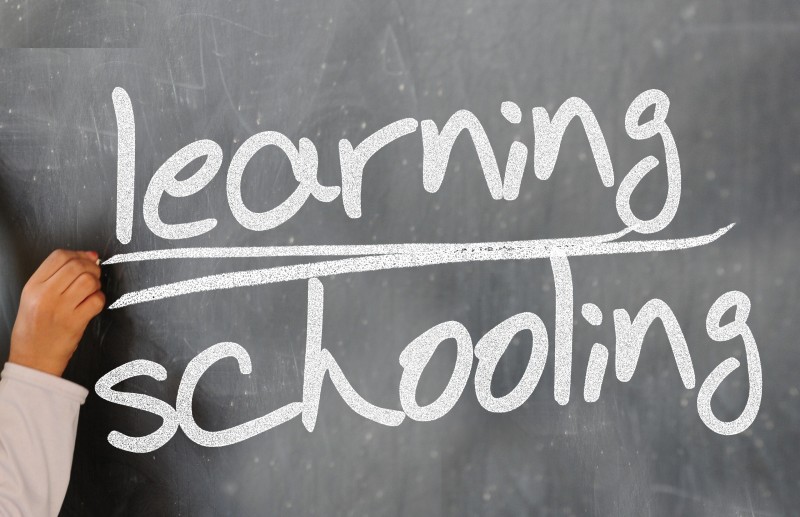If you’re a teacher, continuing education matters for several reasons. You need to meet the minimum state requirements to keep your certificate active. But continuing ed offers so much more than legal compliance.
Continuing education keeps you abreast of best practices and assessment techniques. It arms you with new strategies for improving classroom management and academic outcomes. Investing in continuing education is a hallmark all exceptional educators share. Here’s what you need to know about how ongoing learning benefits your career — and how to incorporate it.

1. Continuing Education Helps You Individualize Instruction More Effectively
Much talk in educational circles centers on individualizing lesson plans to ensure all students enjoy an equitable educational experience. However, in reality, many teachers struggle to implement attainable strategies for achieving this aim.
Pursuing your national board certification or taking advantage of available opportunities to learn best practices aids in this endeavor. You may learn how to set up individual learning stations to assign to small student groups. Doing so enables you to circulate and give one-on-one assistance to students with different learning styles or who need additional examples. Differentiated instruction (DI) is another hot topic for which there are many continuing education resources and opportunities. DI and other strategies can help you reach diverse learners in your inclusive classroom.
2. Continuing Education Teaches You More Effective Assessment Practices
Recent advances in educational philosophy have spurred more schools to switch to an outcomes-based model of assessment. However, teams consisting of members who haven’t studied these practices often struggle to implement such measures.
Assessment matters because without accurate measures, educators cannot evaluate student achievement fairly. A greater understanding of different learning modalities reveals traditional assessment measures don’t accurately reflect the talents of kinesthetic learners, for example. Allowing such students to complete a final project in place of an exam presents a clearer picture of actual learning.
3. Continuing Education Helps You Close the Achievement Gap
The achievement gap refers to significant and persistent disparities in academic performance among students from different demographic groups. For example, students from low-income households often struggle academically as external stressors, such as wondering if they will have dinner on the table or a roof over their heads, take precedence over educational endeavors. Additionally, major racial disparities in student discipline rates have been documented for decades. Exclusionary discipline is a major factor in disparate academic outcomes. Finally, students with physical and mental disabilities face additional challenges with inclusion.
Continuing education gives you specific training on how to best help children in these demographic groups. For example, they may inspire you to advocate for more nutritious school breakfasts and lunches, so low-income students can look forward to at least two solid meals daily. Learning about alternative or differentiated discipline approaches, such a restorative practices (or restorative justice), will help you improve relationships in your classroom and school and prevent and address conflict and behavioral issues. CE also teaches you how to demonstrate inclusivity toward those with physical and mental disabilities and offer additional support without embarrassing students who fall into this category.
4. You Can Experiment With New Learning Technology Through Continuing Education
Technology changes at the speed of light, and it shows no sign of decelerating anytime soon. Children take readily to new technology. Additionally, tablets (e.g., the iPad) and laptops (e.g. Chromebooks) offer opportunities for experiential learning and provide real-time feedback on assessments such as quizzes. Students get instant feedback — and praise for correct answers — instead of having to wait for the teacher to return a test with only incorrect answers marked. Popular technology such as the iPad offers assistive technology solutions for students with autism and many other disabilities. From the earliest grades through transitioning to life after high school, technology is a game changer for all students, but especially students with disabilities.
Keeping up with advances in tech — including how to keep students safer online — demands continuous learning. Plus, it’s much easier to build upon prior knowledge over time than to try to master a new software platform in a one-hour in-service session. You can explore new apps and software in your spare time to add to your knowledge base without spending much money.
5. To Preach Lifelong Learning, You Must Embrace It Yourself
Many teachers preach the importance of lifelong learning to their students. But children can keenly sense insincerity. If you want your students to take your words to heart, you need to walk the walk, not just talk the talk.
Continued learning shows you take your responsibility as an educator seriously. It indicates a high degree of professionalism, one school administrators are sure to notice. Yes, they do know who does the bare minimum and who goes above and beyond.
6. Continuing Education Allows You to Share With Other Professionals
Continuing education helps you grow your professional network. When you subscribe to and read trade journals and participate in focus groups, you gain valuable insights to share with your colleagues.
Sharing valuable information on social media and blog entries establishes you as an expert in your field. If the time comes to seek another position, you’ve developed a reputation as an asset to any institution.
7. Continuing Education Makes You an Exceptional Educator
Participating in and seeking out continuing education demonstrates your commitment to your vocation — by improving your classroom performance and introducing you to new methodologies, it establishes you as an exceptional leader in the classroom.
Continuing Education Opportunities
Continuing education training opportunities are widely available, including through Comprehensive School Solutions, the training division of NPR, Inc. For educators in Florida, three upcoming full day workshops on differentiated discipline with Rufus Lott III are a phenomenal opportunity to learn more about restorative practices and alternative approaches that are equitable and effective.
About the Author Alyssa Abel is an education blogger with an interest in experiential learning, educator resources, early education and higher education. Follow her updates for students and educators alike on her website, Syllabusy.








